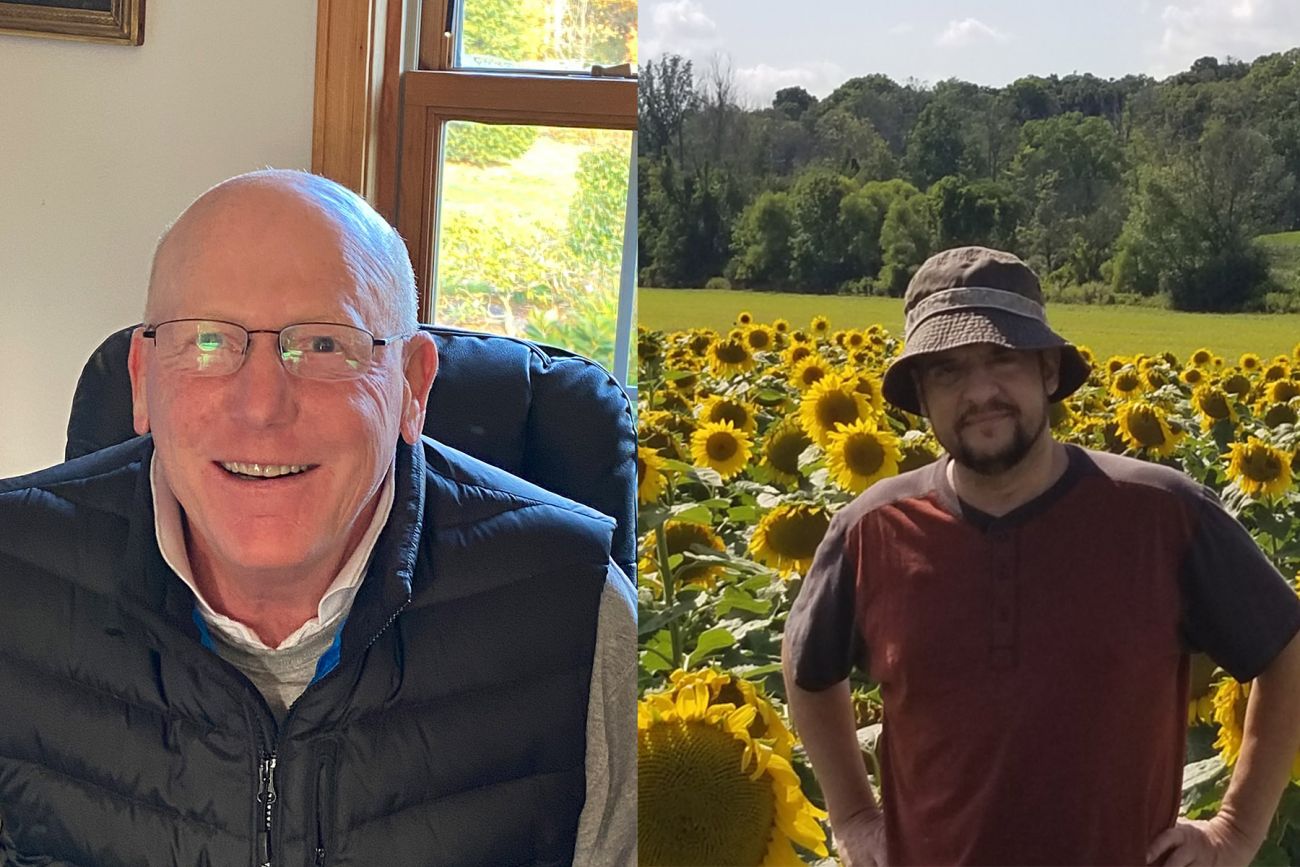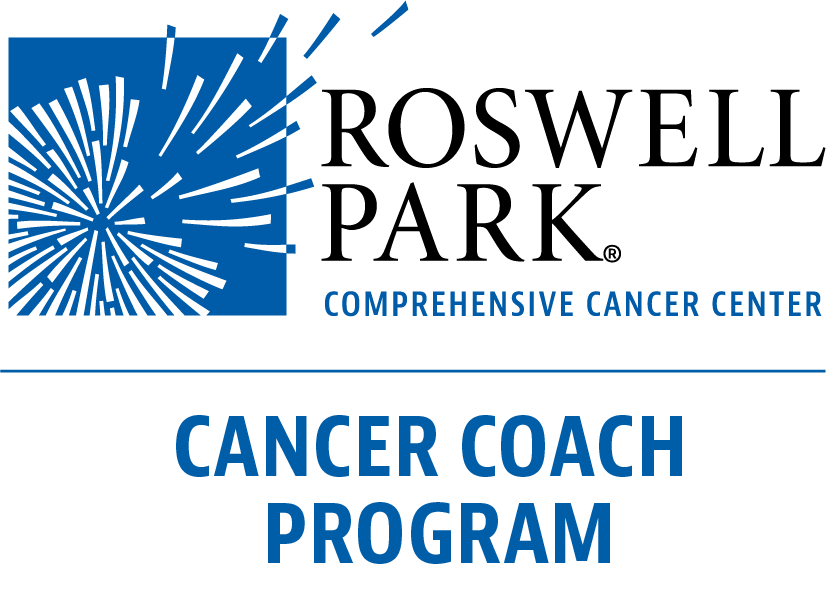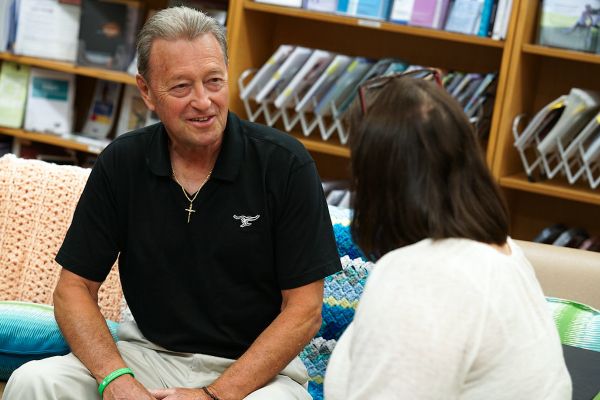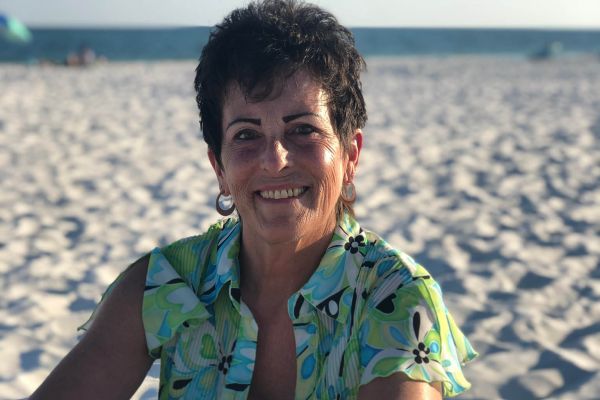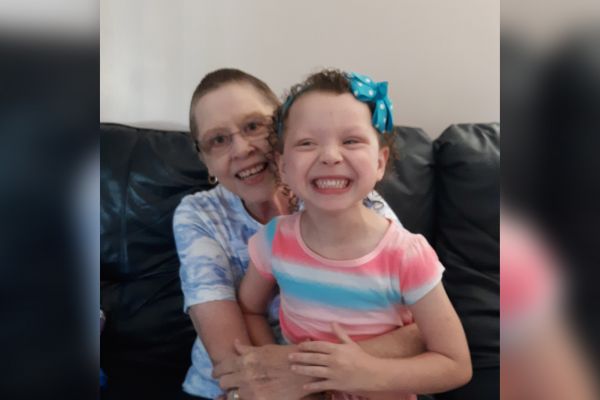When Jim Croft was diagnosed with bladder cancer in June 2015, he didn’t know the journey on which he was about to embark. After Croft noticed blood in his urine, his primary care doctor ordered an ultrasound, which showed black spots on his bladder, and promptly sent him to Roswell Park Comprehensive Cancer Center.
Within days, he had several procedures, including one called transurethral resection of bladder tumor (TURBT) to scrape the inside of his bladder to remove all the tumors. But the procedure revealed that the cancer had grown deeper in the bladder, and by December 2015 his care team decided the bladder would have to be removed altogether.
Croft opted for a neobladder — in which a portion of his intestine was used to create a new bladder — instead of an ileal conduit, a urine-collection bag attached to the outside of his stomach. His surgery was performed by Khurshid Guru, MD, Chair of Urology and Director of Robotic Surgery, using the da Vinci robotic surgical system. Robotic surgery is performed through a few tiny incisions, or ports, and typically results in less blood loss and faster recovery than a traditional operation that involves a large incision.
“They moved me to the intensive care unit on 6 East after surgery, and the people there were terrific,” he recalls. Later he was moved to 7 West, where another group of “absolutely wonderful” nurses helped him recover. In order to go home, he had to be able to walk around the unit. “They told me 33 times around was half a mile, so I got to work,” he said. While initially he was told to expect to stay in the recovery unit for up to two weeks, he went home in seven days. “Every time they turned around, 'There goes Jim!'” he chuckles.
Croft’s cancer journey was not easy. He experienced some complications and underwent a round of chemotherapy, but his experience made him want to become a patient advocate. That led him to take a position on the Patient and Family Advisory Board, where he was challenged to become a Cancer Coach. “I’m not a very compassionate person, but I’ve become more compassionate with the dealings with the hospital,” Croft says. “This place saved my life. That’s all there is to it. I’m very appreciative. This is my opportunity to give back.”
Coaching Another Through Bladder Cancer
Like Croft, Jim Barile has been healthy most of his life. A Western New York native who moved to California more than 30 years ago, he didn’t think a urinary tract infection was anything to be overly concerned about when he developed one in early 2018. Barile, a children’s therapeutic behavioral specialist in Pasadena at the time, took some antibiotics and went about his work.
Even after a second infection later that year, cancer was the furthest thing from his mind.
When the pain came back, his primary care doctor suggested he get checked out at a cancer center in Pasadena. There, a scope was performed and Barile was told there were tumors in his bladder that might be cancerous, but no biopsy was conducted at the time.
Finally, Barile made the decision to seek a second opinion at Roswell Park and met with Dr. Guru. He also underwent a TURBT procedure to remove his tumors and was diagnosed with stage 2 bladder cancer.
“I went back to California at that time. I was still on the clock,” he explains. His job and entire life were still based out there. “Then, in about September of 2019, the pain started to come back. My doctor out there sat me down and said, ‘You need to do yourself a favor. You’re not going to be able to deal with this. We got the report from Roswell Park and it’s cancer. You need to go home.’ That’s when I came back." His treatment plan was overseen by Ellis Levine, MD, Department of Medicine.
In early 2020, Barile was told his cancer had metastasized. He continued his chemotherapy treatment, trying to make the most of being back home with his family 30 years after moving to the West Coast. “When you find that out, things get real. You find out where you’re going to put your allegiance and faith in life,” he says.
Imagine his surprise when, during a recent round of scans, he was told the cancer had dissipated. Barile hasn’t rung the Victory Bell yet, and he’s still going in for regular appointments, but his progress has been remarkable.
“It’s a little surreal," Barile says. He’s grateful to Dr. Levine for “showing real wisdom, compassion and concern. Really, I want to thank my whole medical team for being there for me.”
Through it all, Barile appreciated having Croft as a Cancer Coach. “He calls and shows concern. That alone means a lot to me,” Barile says. “He doesn’t even have to do that. He’s been a real comfort and a great guy.”
Grateful for Family and Cancer Teams
Both men are plain-spoken and direct; they appreciate straightforward communication that delivers what they need to know. They also have strong ties to their families, something that both have needed while going through treatment. After being away from Western New York for three decades, Barile has appreciated being closer to his parents and family, especially when his cancer fight made him very sick, just as the COVID-19 pandemic hit its peak.
Croft also appreciates the opportunity to give back to Roswell Park, and points out that you never know who will be helped by your efforts. His daughter, Caitlin, was diagnosed with breast cancer just before her 31st birthday and had her surgery at Roswell Park.
“They treated her like family when she was sick,” Croft says. “You don’t always know why you do the things you do, why you volunteer for boards or the Cancer Coach position, but then something like this comes around and you understand.”
Roswell Park's Cancer Coach Program
You can connect with a cancer coach or become one yourself.
Learn MoreEditor’s Note: Cancer patient outcomes and experiences may vary, even for those with the same type of cancer. An individual patient’s story should not be used as a prediction of how another patient will respond to treatment. Roswell Park is transparent about the survival rates of our patients as compared to national standards, and provides this information, when available, within the cancer type sections of this website.
